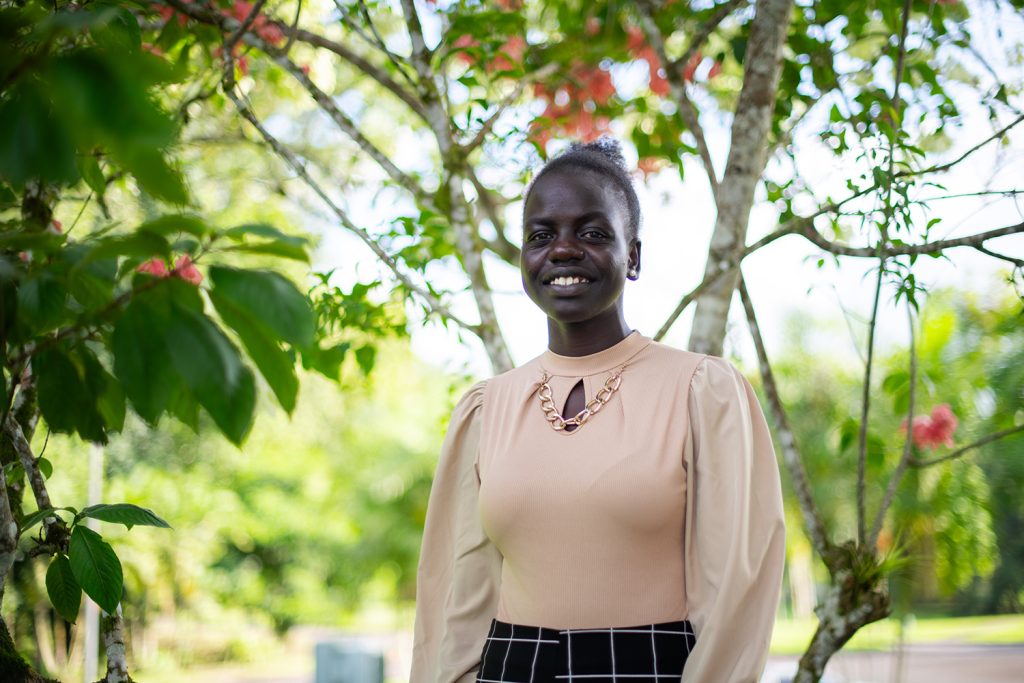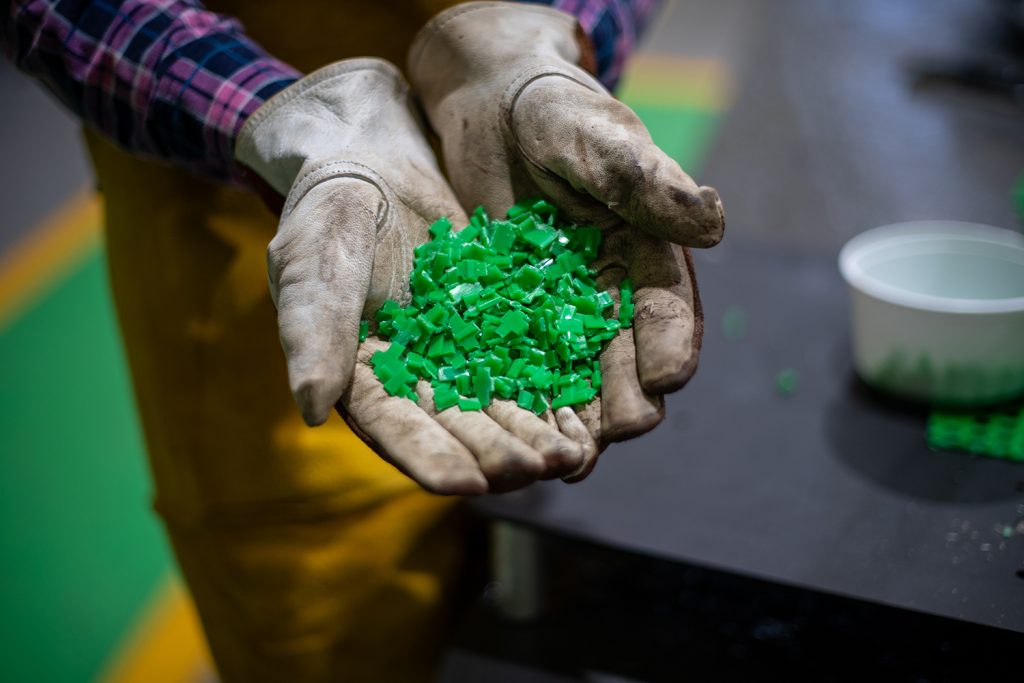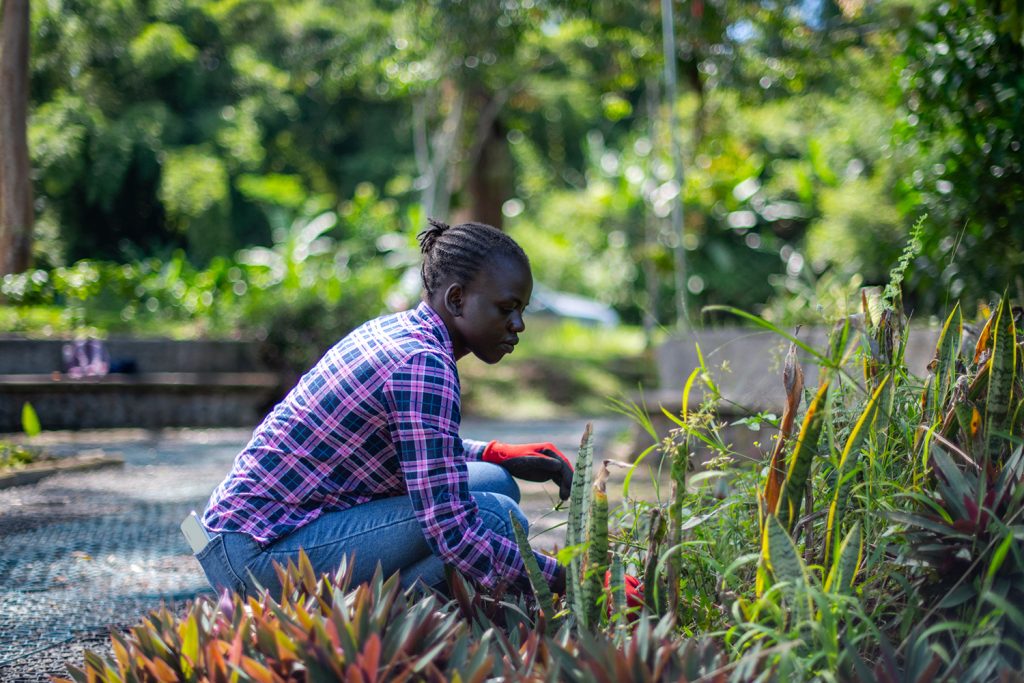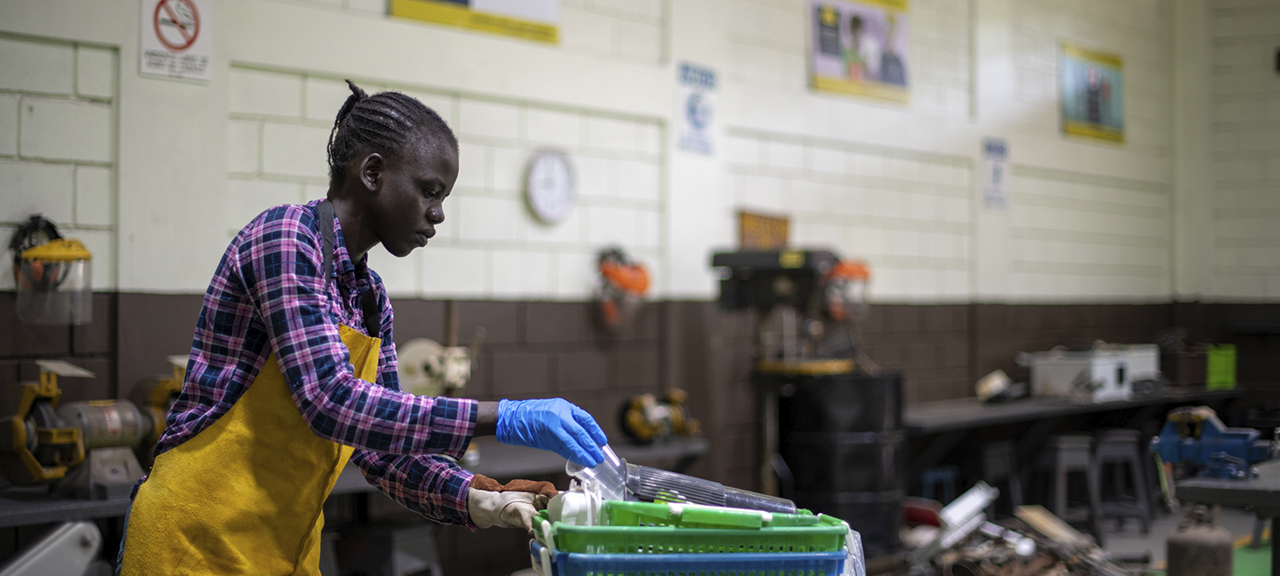Susan Yar Deng, a Mastercard Foundation Scholar at EARTH University (Class of 2028) is from South Sudan, but she was born in Kakuma, a refugee camp in Kenya, where thousands of people from different nationalities live and where daily needs are urgent and evident. “Everyone knows that living in a refugee camp is never easy,” says Susan. And while she speaks with certainty about the place she calls home, she also confidently shares the ideas that have emerged out of a creativity that is providing solutions to the lack of access to food, basic services, and opportunities.
Before being accepted at EARTH through the Mastercard Foundation Scholars Program, Susan spent a long time applying to universities. As a proactive person, she was not content to just wait for responses—she wanted to do more while waiting for doors to open. In Kenya, refugees are not allowed to work, so she decided to volunteer wherever she could. She first taught chemistry and mathematics at a local school. While she taught young people about algebra and the periodic table, they told her about the problems they faced. This gave her a closer look at the reality of other youth, which, far from discouraging her, motivated her to work even harder to make Kakuma a better place.

Later, in 2023, the community—often affected by severe droughts as a consequence of climate change—was devastated by heavy rains and floods that impacted thousands of people. Inspired by her experience in the Red Cross Club in high school, Susan contacted the organization to establish new clubs in eight schools, mobilize students, and raise funds to support those affected by the flooding. Her commitment caught attention, and she was soon recommended for training in plastic recycling and digital design in Mombasa, on the Kenyan coast.
In Mombasa, Susan learned to sort, clean, shred, melt, mold, and transform plastic waste into filaments for 3D printers. With the knowledge she gained, she returned to Kakuma with a recycling machine and a clear vision. She wanted to create useful products for farmers out of what others considered trash, while also training and opening new opportunities for hundreds of young people in collecting, sorting, and reusing plastics. As a Mastercard Foundation Scholar at EARTH University, she has built on this idea and created ReGen Agriplast, a business concept that aims to transform plastic waste into seedling trays—a solution that can enhance agricultural production in contexts marked by droughts and food scarcity.

“Having plastic waste everywhere degrades the environment, damages the soil, pollutes water, and can cause diseases such as cholera or malaria. In Kakuma, people get sick and many times there is no medicine. Recycling not only cleans the environment; it also helps farmers protect their crops in the face of droughts or extreme rains. This is undoubtedly a way to confront climate change and the consequences it brings to communities like Kakuma,” she explains.
Currently, ReGen Agriplast is part of the Scholars Entrepreneurship Fund (SEF), an initiative that allows students from the Mastercard Foundation Scholars Program at EARTH to bring their entrepreneurial projects to life and implement them in their home countries. Thanks to this support, Susan has begun researching and creating prototypes to refine her product’s design.

Her time at EARTH has strengthened her vision: “Here we are empowered to be leaders and change-makers. It’s not just about learning for yourself, but about how we use that knowledge to transform communities. I’m very inspired that sustainability is part of everything we do, because that’s what the world truly needs.”
When asked where she sees herself in ten years, Susan responds without hesitation: she envisions herself progressing, learning new things, and changing the lives of many people—not only in the refugee camp, but beyond. “This project is not just mine, it’s a tool for others to build a better future.”
